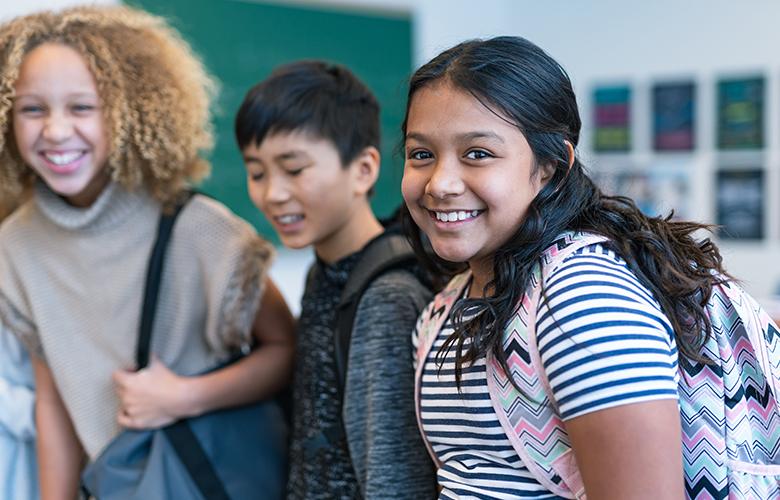
Anyone connected in some way to a school would agree that the seismic disruption to our educational systems due to the COVID-19 pandemic has resulted in more than just gaps in student learning. Anxiety, uncertainties, lack of social interactions, and upended routines are impacting educators, families, and of course young people of all ages and backgrounds.
But we also see a silver lining. Educators across the country are talking about how much their students are benefiting from programs and practices that build social and emotional skills, help students to regulate their behavior, and provide concrete strategies for coping with stress. Student support professionals report that even teachers and administrators who used to regard these types of programs as “extras” or “fluff” now understand that students need these skills to cope in a time of crisis. When students can resolve conflicts or manage their own emotions more effectively, they are less likely to be disruptive and are more able to focus on schoolwork, even during a time of upheaval such as this year.
As schools now begin to plan for students’ return to full-time in-person learning, it is imperative that social and emotional learning (SEL) programs and mental health supports remain a focus of schools’ plans alongside academic recovery. Much has been written about the academic regression among students due to the loss of learning time and other challenges associated with remote schooling and/or frequent transitions in and out of the classroom. When students return to school, an exclusive emphasis on academic recovery without a strong framework of social and emotional supports will threaten their mental health—already negatively impacted by the pandemic—and make a return to “normal” learning even more elusive. It is critical that schools are prepared to support students’ social, emotional, and mental health needs this fall, while also recognizing that students will have different needs.
How can schools best do this? By establishing a multi-tiered system of support (MTSS), schools will be ready to build critical resiliency skills in all students, identify those who need additional support through small groups or other classroom-based interventions, and refer those with more serious issues to counseling or other intensive services. A strong MTSS includes professional development for all teachers and other school staff to recognize signs of trauma in students and practices for gathering and analyzing data to monitor student progress.
To learn more about how schools and districts can develop a cohesive, data-driven, multi-tiered system of SEL and mental health supports, we invite you to register for our webinar on March 26.
| Lauren Gilman is a senior technical assistance specialist and project director at EDC who supports schools and communities on the integration of social and emotional learning (SEL) strategies. | |
| Shai Fuxman is a senior scientist at EDC with expertise in social and emotional learning (SEL) and behavioral health. |


Add new comment